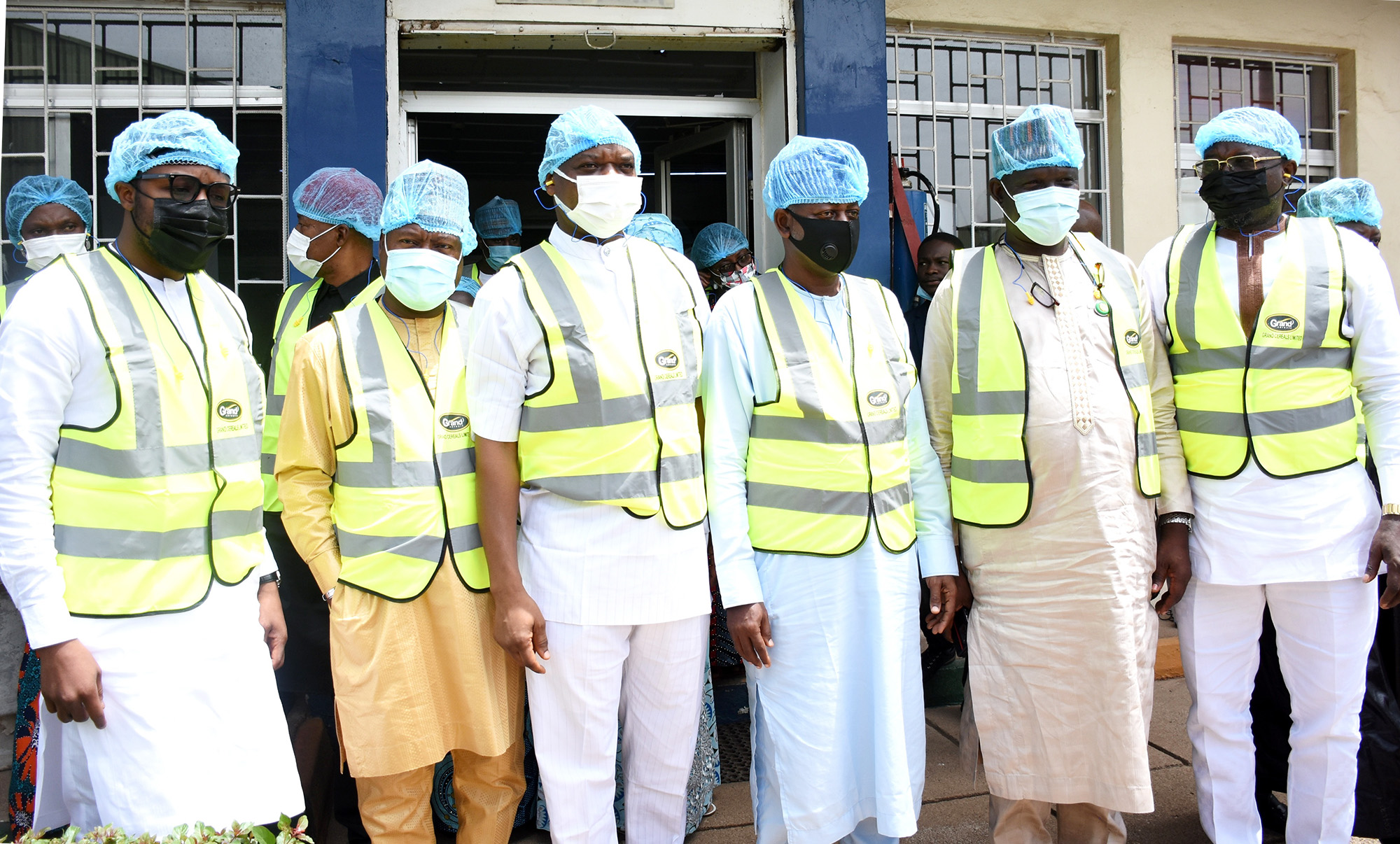Business
Traders Protest FG’s Move To Restore Festac Town

The move by the Federal Government to restore Festac Town in Lagos to its original status has sparked up protest among traders occupying Agboju Amuwo Planks and Building Materials Market.
The traders on Wednesday, protested at the FHA office in Festac Town against the demolition of their market, following the demolition of illegal structures by the Federal Housing Authority (FHA) ahead of the restoration.
The Tide recalls that there was a petition to the Minister of Works and Housing, Mr Babatunde Fashola, in 2020 about illegal structures that had taken over Festac Town.
Speaking at a stakeholders’ meeting on the restoration of Festac town organised by FHA, last year, its South-West Zonal Manager, Mr Akintola Olagbemiro, said, “This year, we commenced the restoration of Festac town, following the consent judgement from the court against illegal occupants of Festac land.
“Our action is to save the residents from the insecurity that has taken over the entire Festac town as a result of illegal structures everywhere”.
The chairman of allottees of First Gate to Third Gate, Mr Kole Olatunji, in his remarks at the meeting said the land from First Gate to Third Gate was allocated between 1985 and 1999, noting that with the consent judgment, original owners of the land as allocated should take over their plots.
But the chairman of plank market, Muhammed Bello, protested the seven-day notice given to traders to vacate the place without alternative arrangements.
Bello said: “How do they expect us to remove our wares in seven days?
“What we want is that they should allow us to remain there and we will pay whatever amount they ask us to pay”.
Speaking in the same vein, the chairman of Cane Chair and Furniture Association, Emmanuel Okoye said: “We need freedom. Let them tell us where they want us to stay. That place was swampy. We filled the place with several millions of Naira which we got as loans.
“We also rely on loans to do our business. Whatever the government wants us to pay; we are ready to pay to remain there. We have been there for 27 years. What we lost to the demolition is over N300 million”.
Transport
Automated Points Concession : FAAN Workers Gave 72hrs To Revise Decisions In PH

Transport
FAAN Announces Pick-Up Points for Go-Cashless Cards

Business
Fidelity Bank To Empower Women With Sustainable Entrepreneurship Skills, HAP2.0
-

 News4 days ago
News4 days agoAmend Constitution To Accommodate State Police, Tinubu Tells Senators
-

 Politics4 days ago
Politics4 days agoSenate Urges Tinubu To Sack CAC Boss
-
Business4 days ago
Crisis Response: EU-project Delivers New Vet. Clinic To Katsina Govt.
-

 News4 days ago
News4 days agoDisu Takes Over As New IGP …Declares Total War On Corruption, Impunity
-
Business4 days ago
President Tinubu Approves Extension Ban On Raw Shea Nut Export
-
Business4 days ago
President Tinubu Extends Raw Shea Nuts Export Ban To 2027
-
Business4 days ago
Fidelity Bank To Empower Women With Sustainable Entrepreneurship Skills, HAP2.0
-
Sports4 days ago
NDG: Rivers Coach Appeal To NDDC In Talent Discovery

